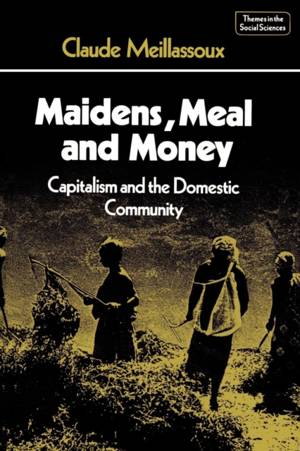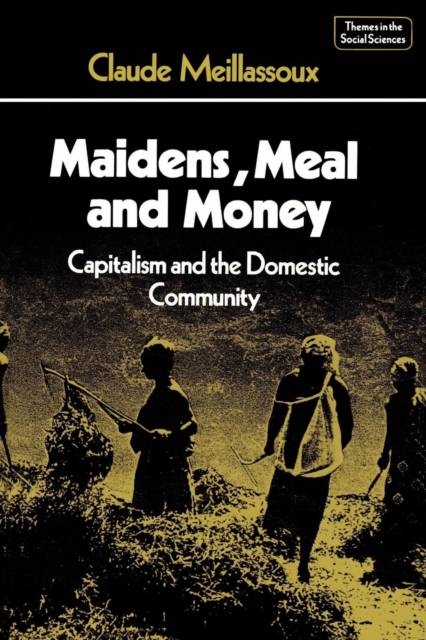
- Afhalen na 1 uur in een winkel met voorraad
- Gratis thuislevering in België vanaf € 30
- Ruim aanbod met 7 miljoen producten
- Afhalen na 1 uur in een winkel met voorraad
- Gratis thuislevering in België vanaf € 30
- Ruim aanbod met 7 miljoen producten
Zoeken
€ 41,95
+ 83 punten
Omschrijving
For over twenty years, Claude Meillassoux has been concerned with the study of the different modes of production which existed in Africa prior to colonisation, and the ways in which they responded to colonisation. In this book Professor Meillassoux draws both on his extensive fieldwork in Africa and on the anthropological literature to provide a detailed theoretical analysis of the self-sustaining agricultural community and its articulation with capitalism through the process of colonisation. Using evidence from the usually separated disciplines of ethnology and economics, he explores the major contradiction created by the persistence within the heart of capitalism of the self-sustaining domestic community as a means of reproduction of labour power, and shows that in fact there is a logical connection between the kinship structures which control reproduction in such communities and the forms of exploitation of workers from groups dominated by imperialism. This book offers the elements both of an advanced theory of the domestic mode of production and of a radical critique of classical and structuralist anthropology. just as Professor Meillassoux's earlier work, L'Anthropologie iconomique des Gouro de Côte d'Ivoire was received as a 'turning point in the history of anthropology', this study, which goes beyond a discussion of concepts in an attempt to further the practical steps taken by Marx and Engels, represents a major contribution to the contemporary progress of historical materialism.
Specificaties
Betrokkenen
- Auteur(s):
- Uitgeverij:
Inhoud
- Aantal bladzijden:
- 212
- Taal:
- Engels
- Reeks:
Eigenschappen
- Productcode (EAN):
- 9780521297080
- Verschijningsdatum:
- 30/04/1981
- Uitvoering:
- Paperback
- Formaat:
- Trade paperback (VS)
- Afmetingen:
- 152 mm x 229 mm
- Gewicht:
- 317 g

Alleen bij Standaard Boekhandel
+ 83 punten op je klantenkaart van Standaard Boekhandel
Beoordelingen
We publiceren alleen reviews die voldoen aan de voorwaarden voor reviews. Bekijk onze voorwaarden voor reviews.











